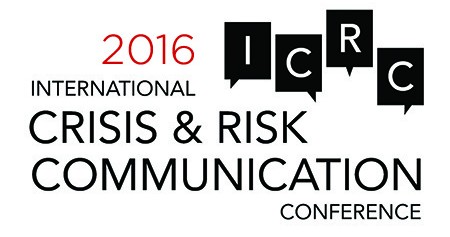
Associate Professor and Director of Forensics
Hofstra University
United States of America
Dr. Tomeka Robinson is an Associate Professor & the Director of Forensics in the Department of Rhetoric. Dr. Robinson’s scholarly interests lie at the intersections of health, culture, and policy. She primarily teaches courses in group communication, oral interpretation, argumentation and debate, and health communication.
Dr. Robinson is currently involved in several research projects with colleagues at the Universidade Metodista de Piracicaba in Brazil and Texas A&M University focusing on the meanings of health and identity. Additionally, she has been invited to give several lectures in Brazil on health and culture within the last few years.
Dr. Robinson is also very active within several professional and civic organizations. She is also currently serving at the President-Elect of Pi Kappa Delta National Forensics Honorary Association.
Constituting Ebola and Organizations: Exploring the Hermeneutics of Risk and Crisis Communication from a Constitutive Approach
Co-Authors and Presenters:
Joel Iverson, Associate Professor, University of Montana
Steven Vennette, Associate Professor, University of Southern Mississippi
When risk and crisis scholars examine organizational crises, they tend to focus on the communication within or from an organization. This approach treats the organization as a given entity or container. However, many risk and crisis issues are larger than any one organization but rather intricately involve multiple organizations. Recently, organizational communication scholars have been exploring theoretical concepts that extend beyond the container metaphor to a constitutive approach, known as the communicative constitution of organizations (Putnam & Nicotera, 2009). Together, the transorganizational nature of crises and the expanded view of organizations problematize some traditional notions of risk and crisis communication while offering opportunities for a deeper understanding of the risk and crisis relationship to organizations. We explore one approach to communicative constitution of organizations for risk and crisis communication drawing upon structuration theory (Giddens, 1984) through the example of the recent Ebola risks in the United States. This case serves to explicate the ways in which many risks and crises extend beyond single organizations and impact organizations beyond traditionally considered borders of the container. We contend that risk and crisis communication is not only a response to risks by organizations, but is central to the enactment of the organizations as well. Moreover, risk and crisis communication have a hermeneutic property whereby they are both the medium for the organization and help to produce the organization itself. We conclude with practical implications for organizations as they position themselves within and through risk and crisis communication.


